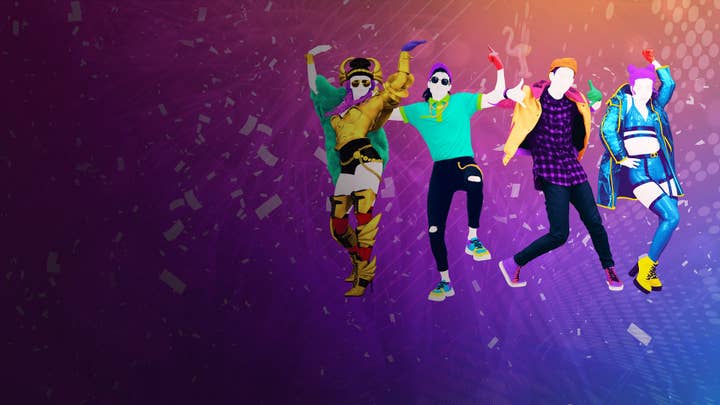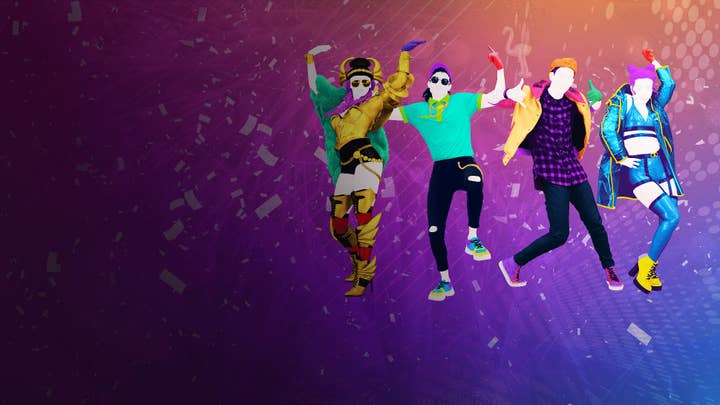Should streamers be worried about DMCA strikes on Twitch?
A rash of copyright claims from music labels points to difficult times ahead for video game streamers
When Twitch was hit with mass strikes over copyrighted music in June, it sent content creators into a panic storm.
Since 2014, Twitch has been working in partnership with Audible Magic to scan Twitch VODs -- archives of previous Twitch streams -- in 30-minute blocks, muting any sections that contain copyrighted music. While this isn't the first time that takedowns have been issued against Twitch, the strikes in June drew significant attention as they included copyrighted audio from video clips -- highlights reels of a stream that are usually captured by other users and weren't previously scanned for copyrighted music.
To say the experience has been stressful for content creators would be an understatement. As many of the videos and clips affected by the strikes were years old, Twitch streamers were worried they'd have to spend hours manually searching through all of their old VODs and clips to check for copyrighted music. Popular streamers can easily amass thousands of clips, and at the time of the strikes there was no way to mass delete clips -- Twitch later implemented this feature in response to criticism.
Streamers initially feared that if they accidentally missed old videos containing copyrighted music and failed to remove them, their channels would face severe consequences -- accounts that receive three copyright strikes are terminated by Twitch, although it is possible for users to dispute these with a counterclaim. There are many streamers on Twitch that have spent years building their channels, slowly amassing thousands of VODs, clips and followers as they turn their hobbies into a full-time profession. In addition to scaring Twitch streamers, these mass strikes are proof that content creators are always at the mercy of platform holders.
"Twitch can't afford to be lenient here, because they risk losing their safe harbor protections under the DMCA"
Noah Downs
"Under the DMCA [Digital Millennium Copyright Act], service providers must have a repeat infringer policy in place to track and remove those who repeatedly upload infringing content," says Noah Downs, a lawyer specialising in intellectual property and copyright law. "Otherwise, a service provider would just re-upload content repeatedly and defeat the purpose of the DMCA.
"A great, well-known example of this policy in action is YouTube's three-strike policy. As a service provider, Twitch is required to have a repeat infringer policy in place and so future takedowns will likely be counted as strikes. Right now, Twitch is effectively utilizing YouTube's system because it appears to work, but Twitch needs to publicly state more details about their strike policies."
Thankfully, what some see as the ambiguity around Twitch's strike policies has worked in the favour of content creators this time; Twitch has announced that any existing clips containing copyrighted music in relation to the June strikes would be deleted without streamers incurring a penalty. While this is great news for those streamers affected, it's likely that Twitter won't be able to exercise the same leniency the next time it receives mass strikes of this nature from copyright holders.
"Twitch can't afford to be lenient here, because they risk losing their safe harbor protections under the DMCA if they do not enforce takedowns appropriately," says Downs. "No company wants to be the poster child for losing protections, and therefore most companies of Twitch's size don't risk pushing the boundaries. The initial response seemed much more like a PR move, because there was a collective gasp from the community at the volume of streamers affected."
Music labels are exploring new revenue streams

The impact of the coronavirus pandemic on the music industry has been devastating. Around 50% of its revenue streams come from live music, according to a report from the World Economic Forum, which also acknowledged the industry is fighting back with new ways to monetise music consumption. Festivals have been postponed, tours have been cancelled, and a survey by Music Venue Trust found only 13% of UK grassroot venues could reopen with social distancing measures in place. That's in stark contrast with Twitch, a platform that's not only been enjoying record-breaking success through the pandemic, but is also owned by Amazon founder Jeff Bezos, a man with an estimated net worth of $148 billion.
"With live events, concerts, tours, and performances cancelled until 2021, revenue from events has dried up," says Sebastian Wolff, games music rights expert and CEO of Materia Collective. "As a result, it's reasonable to speculate that unlicensed or under-licensed video streaming services have become a priority for record labels, music publishers and collective management companies, who rely on those revenue streams. Those efforts are amplified and accelerated by many artists moving to live streaming platforms as a substitute to in-person concerts."
One of the most terrifying things about the mass strikes in June is that all of the major uproar was caused by copyright claims from a single claimant: the Recording Industry Association of America (RIAA), which Warner Music Group uses to issue takedown requests. The claims related to 7 Rings by Ariana Grande, In Da Club by 50 Cent, and Cake By The Ocean by DNCE, all Warner Music Group songs. If copyright claims for three songs sent the platform into this much of a frenzy, imagine how much worse things could get if Universal started pursuing takedown requests for its artists' entire discographies, or if other labels such as Sony Music Entertainment and Warner Music Group started doing the same?
Sources have confirmed that external scanning software was used by the RIAA for these claims, rather than Audible Magic. It's important to note that Twitch isn't issuing these strikes directly against its users; rather, the platform is only enforcing them.
"The DMCA strikes issued felt more like a warning shot. It felt like the major labels and rights holders were testing the waters"
Ryan Capps
While Twitch is a DMCA-compliant service, Twitch has voluntarily engaged with global performing rights organisations regarding licenses for Twitch. Twitch was keen to emphasise to users that its guidelines on music haven't changed, and that it's legally obliged to enforce DMCA claims in accordance with safe harbor laws. The only thing that has changed is the music industry is now suddenly enforcing these strikes en masse, leaving some streamers to speculate that the mass strikes in June were nothing more than a flex, and a sign that the worst is yet to come.
"Every year, someone somewhere is hit with a DMCA strike and it drives the entire industry into a frenzied panic," says full-time streamer Ryan Capps, who is also co-founder of Pretzel Music. Capps started his streaming career while "blasting out whatever music I wanted" on Spotify alongside his game streams, but it wasn't until the music industry's crackdown on YouTube that he realised it was only a matter of time until the same constraints arrived on Twitch. When the music industry issues copyright claims, he says, it results in streamers freaking out and researching safe music and resources, but they eventually fall back into old habits.
"This year felt different, though," says Capps. "The DMCA strikes issued felt more like a warning shot. It felt like the major labels and rights holders were testing the waters. The concern among streamers now is that major labels and publishers are done messing around and will one day soon come for their slice of a multi-million dollar industry."
We asked the RIAA if Twitch users could expect similar copyright strikes in the future and received this response:
"Twitch is using music for its own benefit without compensating recording artists and songwriters at a time when these creators can't tour and are even more focused on reaching their fans through live streaming platforms. Twitch must play by the same rules as every other platform with which it competes and respect the work of artists and other music creators, just as their parent company [Amazon] endeavors to do through its other services."
Acquiring licenses for copyrighted music is complex

Music licensing is incredibly complicated, and it only gets more complicated when you throw video games into the mix. There are six types of music licenses that are used for a variety of different purposes. If you want to include music in your livestreams you must have a valid sync license, but this requires permission from each and every copyright holder. The copyright in songs and the copyright in recordings are also completely different, and as soon as music is licensed for a video game, that music is technically being copied and communicated, which are often licensed separately. On top of all that, music rules vary in different territories all around the world.
The June strikes have been a wake-up call for many streamers that haven't taken the time to familiarise themselves with the DMCA and Twitch's guidelines on music. The most important lesson: if you have purchased a video game, that does not grant you the right to play the music in that game on a broadcast. If the music industry continues to focus its attention on Twitch, games with heavily licensed soundtracks such as Grand Theft Auto, Tony Hawk's Pro Skater and FIFA will become incredibly difficult to stream.
One Reddit user has responded by compiling an extensive list of recorded copyright claims for video games. Many games that you might imagine to be safe are included. The Final Fantasy series, for example, features many songs that have been released outside of the game and are owned by Sony Music Entertainment. Add to that a growing number of game publishers that are adding their music to streaming platforms such as Spotify, and it wouldn't be surprising if companies such as Nintendo started pursuing copyright claims for its music in the same way it previously has done for YouTube.
Can Twitch and game publishers help improve the situation?
Twitch streamers are an important ally for PRs and marketers, helping drive anticipation and interest for new releases as well as sustaining lively communities for previous releases. Sebastian Wolff believes it's imperative for video game companies to improve their understanding of music rights and work with experts when they're licensing music.
"Twitch is using music for its own benefit without compensating recording artists and songwriters"
Recording Industry Association of America
"All music is copyrighted. All music requires proactive rights management," he says. "It's imperative that game companies take music rights management seriously, today, and work with experts who understand the space. Why? I would not be surprised if video streaming platforms start requiring proof of licensing from its verified creators, of all (or most) audiovisual content. Sync licenses for audiovisual content are required, and game companies need to either waive those rights, proactively, or grant streamers those rights, proactively.
"Adherence to negligence has expired. Worst case, by nature of music industry pushback, streaming platforms may elect to mute unlicensed content by default, rather than mute the claimed content. By my estimate, this would affect more than 95% of game streams."
Chris Cooke, founder and managing director of music consultancy CMU, believes the current challenges faced by Twitch and its users will be difficult to resolve due to the amount of work required by parties at both ends.
"Sorting out licensing for a platform like Twitch will be a challenge, because it won't be able to rely on blanket licences from the collecting societies, certainly not on the recordings side, and probably not on the songs side either," Cooke says. "The debate is ongoing as to quite how we define a livestream in copyright terms, but Twitch would almost certainly need to negotiate deals with all three major record companies, an organisation called Merlin that represents many of the indie labels, and then the distributors that represent everyone else on the recordings side.
"On the songs side, they will probably need to do deals with both the music publishers and the collecting societies. That's quite a lot of work. Though, obviously, Amazon already has all of those relationships for its other services."

What changes can be made to the DMCA?
As the DMCA law is over 22 years old, is it time there was reform to bring it up to date with modern platforms?
"Yes, definitely," says Noah Downs. "Most copyright law is [out of date], although the 2018 Music Modernization Act helped a bit. I think a user-focused DMCA reform is what we need, because -- keep in mind -- any change could also be made in favor of the corporations. I believe that if we required and codified a fair-use consideration under the DMCA, we would encourage even more creative expression and content use."
"The DMCA has faltered and failed both creators and copyright holders as user-generated content has exploded"
Sebastian Wolff
Sebastian Wolff believes the DMCA is a "band-aid" for an internet that existed in the last century: "This 1998 law has faltered and failed both creators and copyright holders as user-generated content has exploded. The current status is a system of whack-a-mole for copyright holders who prefer a stranglehold on their rights, rather than ensuring content can be used and licensed by fans."
Wolff is also keen to point out that, ultimately, a lot of the responsibilities fall back onto gaming companies to ensure that they -- and their players -- aren't caught out by the DMCA. "Owning copyrights is a responsibility, burden, and liability," says Wolff. "Most game companies neglect these responsibilities. Game companies who are interested in strengthening their relationship with fans will need to ensure they understand music, streaming, and broadcast rights. Catching up to legislative changes or platform policies will be more expensive later."
Slowly working towards a solution
While there's no simple solution to resolving the legalities surrounding fair use and copyrighted music in Twitch streams, game publishers, music companies and platform holders are all working on solutions to help make navigating this complicated area a little easier for Twitch streamers.
Some video games now include the option to mute copyrighted music in their audio settings. Remedy's Control and Dontnod's Life is Strange series are both examples of this feature being implemented. Music labels such as Monstercat offer a subscription-based service that grants streamers a license to play their artists' music during streams, though there are still some tracks that are non-licenseable and other companies such as Pretzel provide DMCA-safe music curated by its staff.
One of the biggest questions arising from the recent strikes is the position in which developers of rhythm games are now in. In January 2019, Beat Games, the developer of Beat Saber, announced it was able to turn off YouTube content ID for all of its songs thanks to successful negotiations with the featured artists. It's likely that future rhythm games will favour curating tracks by independent artists, rather than those by artists signed to any of the three major record labels. That said, the recent strikes haven't been enough to put off some content creators, such as Just Dance streamer TheAllu.
"The June takedowns were a small sampling of what the huge labels like Universal and Warner can do"
Noah Downs
"As a Just Dance streamer, I've always been in the danger of getting a takedown, and the only way I feel like I could avoid that would be to dance without music, which just doesn't work," he says over email. "Basically, I'll just keep making content and hope my channel won't be shut down."
Other Twitch streamers, such as Valen Vain, believe that while the entire experience has been a learning curve for content creators, Twitch could have responded sooner. He says one of the most infuriating things about the experience has been that most of the information has come secondhand from community members, rather than Twitch directly.
"It would also be useful to have a list of games/categories that are likely to be or have been affected by the DMCA action, as I have heard that it isn't only rhythm and dance games that have been affected," he says. "There are far too many rumours and conjecture and not enough legitimate information about the situation, especially regarding games that have licenses to incorporate copyrighted music, but not the license to have that music upon a broadcasting platform."
While we're not privy to the negotiations that are presumably taking place between Twitch and music rights holders, it's likely that things will only get worse before they get better. Noah Downs says that deleting old VODs and clips from Twitch isn't enough to avoid takedowns, either.
"Live DMCAs are possible and that technology is already in place," he says. "If we keep the current course, the DMCA will have an incredible dampening effect on content creation. The June takedowns were a small sampling of what the huge labels like Universal and Warner can do -- they were really just a warning of what's to come if either content creators or Twitch do not pony up the cash for proper licensing.
"If major developers decided to also implement selective DMCA takedowns against content creators playing their games, then the entire streaming industry would suffer."

